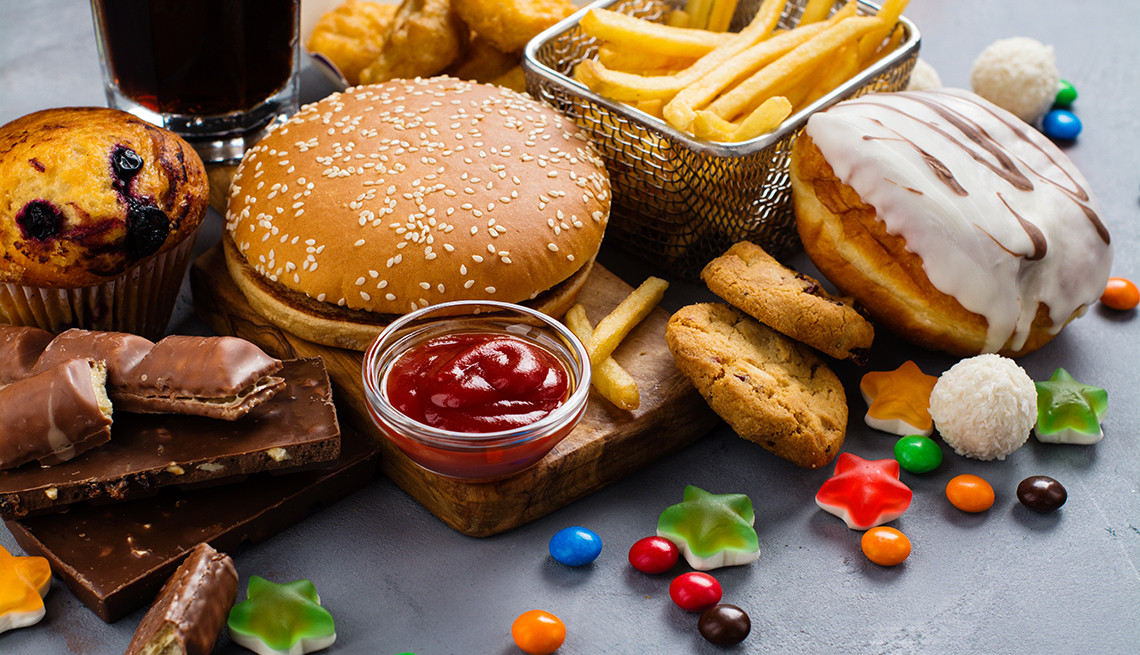
- Select a language for the TTS:
- UK English Female
- UK English Male
- US English Female
- US English Male
- Australian Female
- Australian Male
- Language selected: (auto detect) - EN
Play all audios:
THE FOOD-BRAIN RELATIONSHIP Many foods that line the grocery store shelves are considered processed. For example, bagged salads go through minimal processing; so do cans of beans and boxes
of frozen vegetables. But the types of foods that these studies looked at “really go through a significant industrial process and contain large quantities of fats, sugars, salt, artificial
flavors and colors, even stabilizers and preservatives,” Edelmayer says. Most live in the center aisles of the grocery store, not the fresh and refrigerated sections along the perimeter. And
when it comes to their potential impact on brain health, it’s important to remember that “the whole body is interconnected,” says Stephanie Kim Nothelle, M.D., a geriatrician and assistant
professor of medicine at Johns Hopkins Medicine, who was not involved in the aforementioned studies. The brain is a highly vascular organ, Nothelle explains, and everything we eat gets
absorbed into the bloodstream. “And so if you’re eating something that’s really high in fat, or really high in salt, or really high in sugar, those things are going to be distributed
throughout the body and have effects everywhere, including the brain,” Nothelle says. Research shows that people with certain health conditions that can be influenced by a bad diet — heart
disease, high blood pressure and diabetes, for example — are more likely to experience cognitive decline as they age. These are also risk factors for stroke. Another thing to consider: It
may not be what you’re eating when you devour a packaged snack but what you’re not eating when you choose that highly processed option over, say, a piece of fruit, points out Paul Jacques, a
senior scientist at the Jean Mayer USDA Human Nutrition Research Center on Aging and a professor at the Friedman School of Nutrition Science and Policy at Tufts University. “There’s a lot
of things in [whole] foods — a lot of phytochemicals, polyphenols — that have been associated with brain health that aren’t going to be found in most ultraprocessed foods,” he says. These
brain-boosting compounds are “hard to avoid” if you’re eating a mostly plant-based, Mediterranean-style diet. You can find them in berries, onions, apples, leafy greens, nuts and seeds. Fish
is another food that research has shown may benefit the brain. “The important thing [to think about] is what are the ultraprocessed foods replacing,” Jacques says. “It’s really looking at
your overall diet and seeing what’s in it.” And know that a handful of blueberries once a week won’t offset a steady stream of fast food, he adds.





